#Jewish ethics
Note
So what’s the modern interpretation of the laws about keeping slaves? I’ve heard that said laws where a lot more kind to slaves then the surrounding nations but, like, it’s still slavery?
Hi anon,
With Pesach coming up, I'm sure that this question is on a lot of people's minds. It's a good question and many rabbanim throughout history have attempted to tackle it. Especially today, with slavery being seen as a moral anathema in most societies (obviously this despite the fact that unfortunately slavery is still a very real human rights crisis all over the world), addressing the parts of the Torah that on the surface seem to condone it becomes a moral imperative.
It's worth noting that the Jewish world overall condemns slavery. In my research for this question, I came across zero modern sources arguing that slavery is totally fine. I'm sure that if you dug deep enough there's some fringe wacko somewhere arguing this, but every group has its batshit fringe.
Here are some sources across the political and religious observance spectrum that explain it better than I could:
Chabad (this article is written by Rabbi Tzvi Freeman, a wonderful rabbi whose words I have learned deeply over the years. He is one of my favorite rabbis despite not seeing eye to eye with a lot of the Chabad movement)
Conservative (to be clear: this is my movement; it's not actually politically conservative in most shuls, just poorly named. We desperately need to bully them into calling themselves Masorti Olami like the rest of the world. It's [essentially] a liberal traditional egalitarian movement.)
Conservative pt. 2 (different rabbi's take)
Reform (note that this is from the Haberman Institute, which was founded by a Reform rabbi. Link is to a YouTube recording of a recent lecture on the topic.)
Chareidi (this rabbi is an official rabbi of the Western Wall in Israel, so in a word, very frum)
Modern Orthodox
I want to highlight this last one, because it is written by the Rosh Yeshiva of Yeshivat Chovevei, which is a progressive Modern Orthodox rabbinical school. They work very hard to read Torah through an authentically Orthodox lens while also maintaining deeply humanist values. As someone who walks a similar (if not identical) balancing act, this particular drash (sermon) spoke very deeply to me, and so I'm reposting it in its entirety**
[Edit: tumblr.hell seems real intent on not letting me do this in my original answer, so I will repost it in the reblogs. Please reblog that version if you're going to. Thanks!]
Something you will probably notice as you work your way through these sources, you'll note that there are substantially more traditional leaning responses. This is because of a major divide in how the different movements view Torah, especially as it pertains to changing ethics over time and modernity. I'm oversimplifying for space, but the differences are as follows:
The liberal movements (Reform, Renewal, Reconstructionist, etc.) view halacha as non-binding and the Torah as a human document that is, nevertheless, a sacred document. I've seen it described as the spiritual diary of our people throughout history. Others view it as divinely inspired, but still essentially and indelibly human.
The Orthodox and other traditional movements view halacha as binding and Torah as the direct word of G-d given to the Jewish people through Moshe Rabbeinu (Moses) on Mt. Sinai. (Or, at a minimum, as a divinely inspired text written and compiled by people that still represents the word of G-d. This latter view is mostly limited to the Conservative and Modern Orthodox movements.)
Because of these differences, the liberal movements are able to address most of these problematic passages by situating them in their proper historical context. It is only the Orthodox and traditional movements that must fully reckon with the texts as they are, and seek to understand how they speak to us in a contemporary context.
As for me? I'm part of a narrow band of traditional egalitarian progressive Jews that really ride that line between viewing halacha as binding and the Torah as divinely given, despite recognizing the human component of its authorship - more a partnership in its creation than either fully human invention or divine fiat. That said, I am personally less interested in who wrote it literally speaking and much more interested in the question of: How can we read Torah using the divinely given process of traditional Torah scholarship while applying deeply humanist values?
Yeshivat Chovevei does a really excellent job of approaching Torah scholarship this way, as does Hadar. Therefore, I'm not surprised that this article captures something I have struggled to articulate: an authentically orthodox argument for change.
52 notes
·
View notes
Text
Azula through a Jewish lens
What is Azula halachically responsible for?
Azula and the awakening of the yetzer-hatov
And a follow-up post.
The evil impulse as redeeming trait
38 notes
·
View notes
Text
Reform Judaism's stance on organ donation, as answered by Rabbi Billy Dreskin
As a registered organ donor and a prospective future bioethicist myself, this was a really interesting read!
12 notes
·
View notes
Text
Judaism is a complex and subtle faith, yet it has rarely lost touch with its simple ethical imperatives. We are here to make a difference, to mend the fractures of the world, a day at a time, an act at a time, for as long as it takes to make it a place of justice and compassion where the lonely are not alone, the poor not without help; where the cry of the vulnerable is heeded and those who are wronged are heard.
Rabbi Lord Jonathan Sacks z"tl, To Heal a Fractured World p.5
5 notes
·
View notes
Text
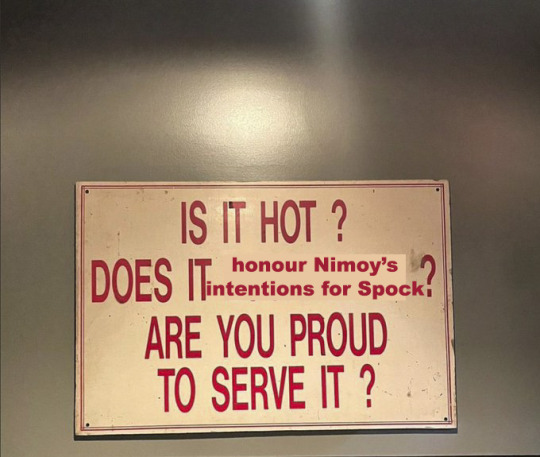
sorry I'm not a photoshop master but would someone mind hanging this up in the SNW writers' room because I think we have all had enough
#Nimoy's portrayal of Spock is INTENTIONALLY Jewish coded and visibly queer coded#you can claim ignorance as a casual fan but as a writer it's your JOB to know and honour this shit#SNW has done ok with autistic coding of Spock but the erasure of the other stuff feels deliberate at this point#like cishet white nerd men want him to be like them so they make these bizarro choices that feel like a totally different person#sorry but he's not FOR you#he was NEVER for you#you already have everything else please just let him be the way he was intended to be#let us have one gd thing#why are the opinions of people who don't care about Star Trek's ethics and legacy more important than the opinions of the those who do#star trek#strange new worlds
2K notes
·
View notes
Text
New Pinned Post: How This Blog Approaches The Conflict
I am not normally a politically-focused blog. I am normally a personal blog that enjoys fandom and occasionally processes my own past trauma. As this war goes on, I am finding that it is against my personal ethics and morals to stay silent when I have the ability to educate and remain more patient than most. (My patience is not endless. I’m still human). So, while disinformation/misinformation, and propaganda abound on all sides. I feel like the best way I can help lower the temperature is to put my skills to use.
Primary Political Goals:
1. Emphasize humanity above all and use verifiable information and good faith education and discourse to reduce tension.
2. Do my absolute best to move the conversation away from polarizing, accusatory discourse that forces Jews, Muslims, Arabs, Israelis, and Palestinians to play a desperate game of defense and toward a shared mutually beneficial peace that honors each grouped indigeneity culture, and connection to their ancestral homeland.
3. Demonstrate and emphasize both Jewish-Muslim solidarity and Israeli-Palestinian solidarity.
Primary Blogging Goals:
As a diaspora Jew, my primary goal is threefold
1. Educate about antisemitism and Islamophobia—including calling it out and explaining it to the best of my ability.
2. Elevate responsible, verifiable voices—regardless of religion or nationality—and information to the best of my ability.
3. Demonstrate effective activism and provide insight and encouragement for other to find their most effective way to contribute to fostering peace.
Elaboration:
1. I have the most experience with an understanding of antisemitism. I am more of an expert in antisemitism and have more ability to identify and educate about it. That said: I will not tolerate any Islamophobia or racism and if I don’t have the ability to educate about it, you will be blocked. If I have the ability to educate about it, I will do so and give you the chance to read about it and adjust your behavior. If you do not do so, I will block you.
2. This does not mean equal representation of all nationalities and religions. It means the best informed and most reliable voices AND the voices I personally have the best ability to vet, verify, and substantiate. This will often mean Jewish voices and Israeli voices. This is me staying in my lane, not choosing to suppress any voice. I will not elevate purposefully divisive, tokenized, or uninformed voices. This does not mean that I won’t elevate Palestinian, Muslim, and Arab voices as well. I will. But my primary goal here is responsibility. To do that, I have to stay in my lane.
3. I am most effective as an educator on this matter, a guide to finding reliable peace-oriented voices, and an example of patience. There’s a great desire among many to protest or create videos detailing their opinions and stances. Not only is this primarily performative—especially among non-Muslim/non-Palestinian goyim—it has the potential to be extraordinarily damaging to Jews both in Israel and in Diaspora as well as to Arabs, Muslims, Palestinians, and South East Asians worldwide. If you truly desire to help and not just feel like you’re helping, the best thing you can do is follow the lead of much more experienced activists with a demonstrated track record of effectiveness and good faith in their areas of expertise. As I stated: mine is primarily education and greater than average (though not limitless) amounts of patience. If you want to donate money or engage in more direct action and aid, I suggest finding pro-Palestinian Israeli voices and peace oriented Muslim, Arab, and Palestinian voices as well as organizations with experience in this conflict that do not rely on eliminating any population or erasing anyone’s connection to the Levant. Follow their lead on that matter. If you are only just engaging in this conflict for the first time due to current events, you likely do not know nearly as much as you think you do about any of this. Being uninformed and spouting disinformation has actual dire consequences that can get Jews, Muslims, Palestinians, Israelis, and Arabs killed. It is vital that you’re responsible in your engagement on this matter. Learning dogwhistles and how to spot bad faith arguments is a must. And to be effective, you should spend more of your time learning than you’re doing protesting or arguing. This is a 2000+ year old conflict. There is a lot to know and understand. And there are a lot of people willing to prey on your newcomer status and manipulate your existing beliefs to use you as a pawn to further their bad faith aims. The only consistent, trustworthy principal is to trust those who repeatedly affirm their goal as peace and shared prosperity and who reject any form of demonization based on ethnicity or religion. This is not a game. This is not the west’s fight. This is a conflict between two horribly oppressed, traumatized, and nearly exterminated ethnoreligous groups.
I am begging you to think, listen, and learn before joining the fray.
Note: I also don’t claim to be perfect. If I mess up or reblog something that causes unintended harm (which is very easy to do when engaging in discussions and activism about this conflict), I will say so and issue a correction. There’s no need to be hostile in informing me about this. Just message with your concern and I’ll evaluate from there.
Additionally, I will not interact with Hamas apologists. Hamas is a terrorist organization.
Anyone trying to make me feel like this is an Us vs. Them situation will be blocked.
#pinned post#i/p#Israel#Palestine#antisemitism#islamophobia#leftist antisemitism#responsible advocacy#blogging ethics#activism#education#direct action#sphere of influence#misinformation#disinformation#infodemiology#jewish muslim solidarity#black jewish solidarity#jumblr#media literacy#frequently referenced
172 notes
·
View notes
Text
.
#this is stepping onto fraught ground and i'm prefacing it with my own position as a non-jewish non-muslim white american#but the past 2 months i've felt myself experiencing a falling out with online leftist circles over the denial/cheering on of oct 7 violence#and more generally the authoritarian/tankie-adjacent turn i've noticed happening over the past several years in a lot of leftist circles#and it has me looking for examples of a left politics that takes pacifism and the sanctity of all human life as serious ethical principles#which i think is what is pointing me increasingly toward christian anarcho-pacifism and people like leo tolstoy and dorothy day#it's not necessarily the christianity that is essential to me although my own faith journey has been leading in that direction for years#but that i see commitment to the sanctity of all human life and refusal to celebrate or glorify violence as non-negotiables#this is not to say that i see violence as never justified under any circumstance. but the tendency for (esp. white and western) leftists#to cheer it on provided that it is deemed suitably anti-colonial and liberatory is indicative of something that has gone very wrong#also: none of this should in any way be taken as contradicting my fundamental support for the freedom of the palestinian people
27 notes
·
View notes
Text
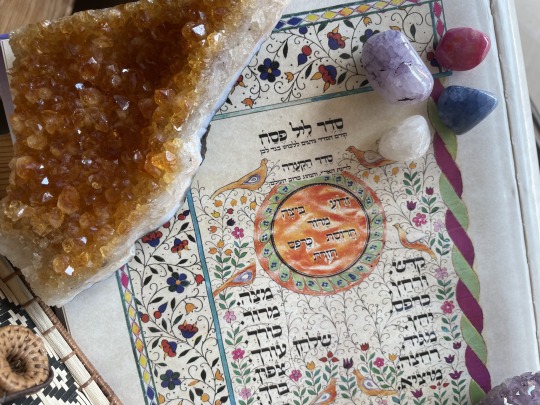
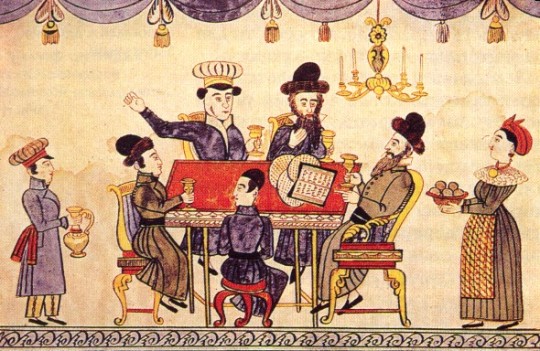
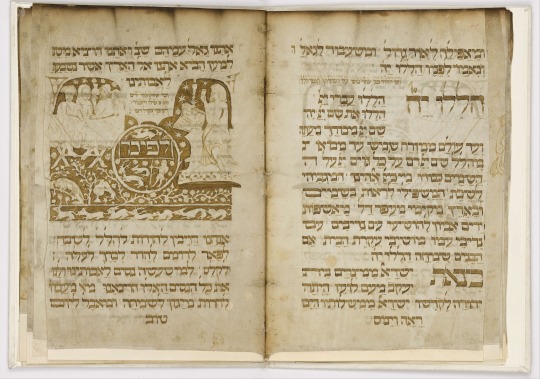




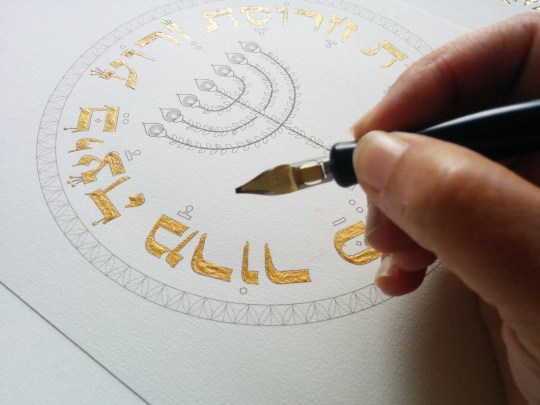
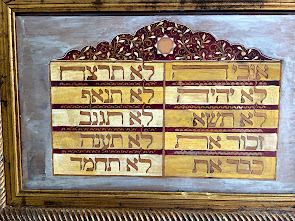




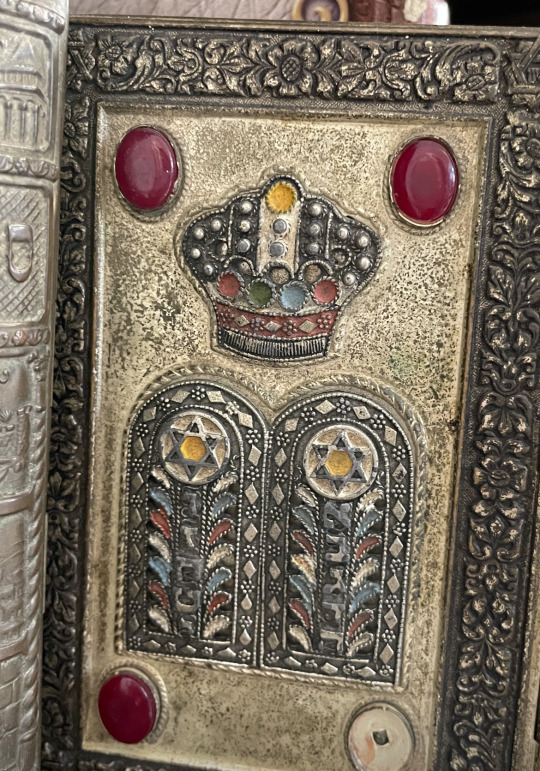
וְהִגַּדְתָּ לְבִנְךָ
(שמות יג, ח)
#faith#holyland#jewish judaism#judaism#holiness#passover#pesach#jewish#holiday#biblical#ten commandments#ethics#matzo#bible scripture#sacred
12 notes
·
View notes
Text
Very interesting article with a lot of discussion points and a lot to think about.
(If you're wondering about the context of gladiators- many Jewish men were enslaved as gladiators, and that's why the Rabbis discuss "witnessing the death", since in Judaism physical confirmation of death is important for mourning and for allowing a woman to not be considered still married.)
81 notes
·
View notes
Text
it's so frustrating to see the ease with which people take israel to be representative of all jewish people somehow. like yesterday I was reading the news and it said something like 'the jewish and the palestinian side of the conflict' as if jewish people are a hivemind and universally support israel. ultimately I think that's a narrative that just benefits israel and if you buy it I'll conclude you respect neither jewish people nor palestinians, you just respect colonial interests
#for the record I'm aware that there are jewish people who do support israel (some of my own relatives included)#so I'm not trying to evade responsibility here or something like that#but acting like the whole jewish community does is ignorant and harmful. to give one example: what about palestinian jews?#and another thing I read on the news was support for palestine in the west being framed as something to 'blame' on muslim immigrants#like yeah I'm sure that's ethical and won't make polarisation worse!#anyway I'm done ranting. I'm just pissed bc I saw a gentile berating a jewish person for being anti-zionist and calling them an antisemite
21 notes
·
View notes
Text
Nearly 700 Jewish professors call on Biden not to sign controversial antisemitism legislation
https://thehill.com/homenews/education/4651826-jewish-professors-biden-antisemitism-legislation/
#joe biden#genocide joe#antisemitism#legislation#jewish antizionism#law#morals#ethics#fascism#statism#anti imperialism#us imperialism#american imperialism#fuck imperialism#usa news#usa politics#usa#american indian#american#america#zionistterror#zionazis#zionistcensorship#zionists#class war#oppression#repression#amerika#amerikkka#government corruption
5 notes
·
View notes
Text
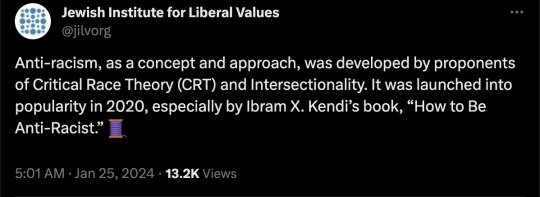
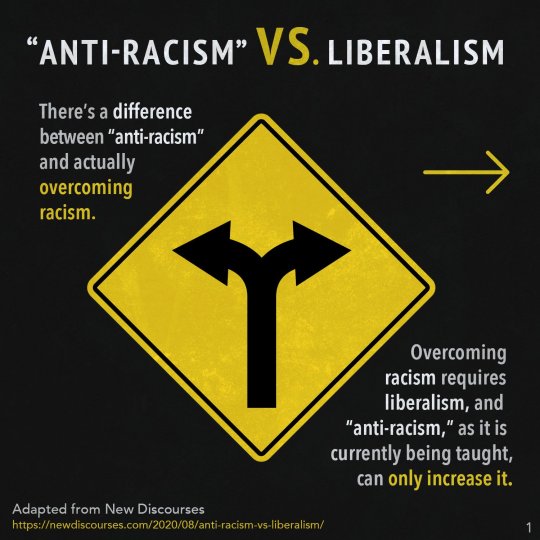
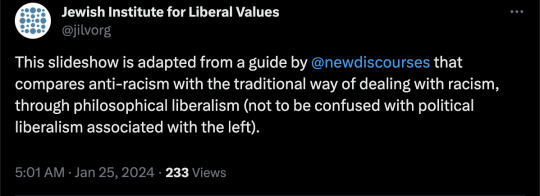
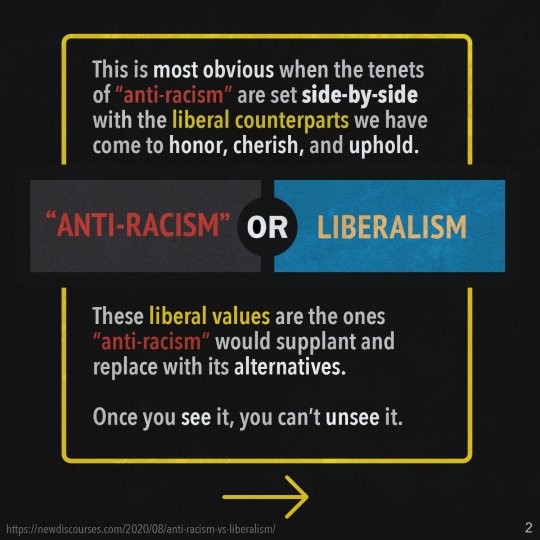
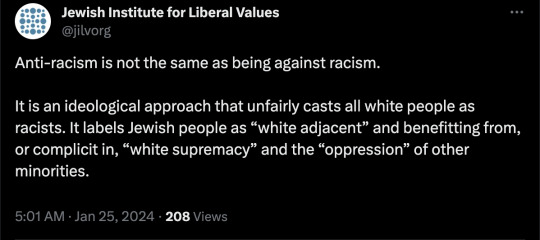
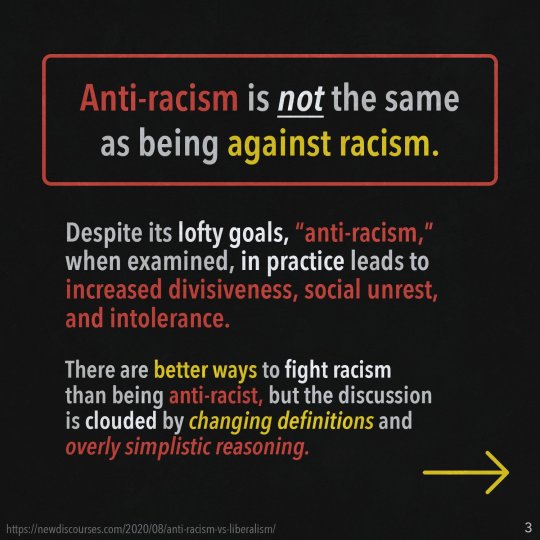
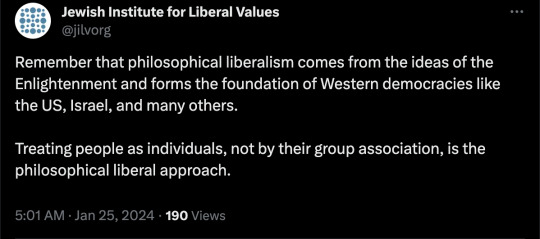
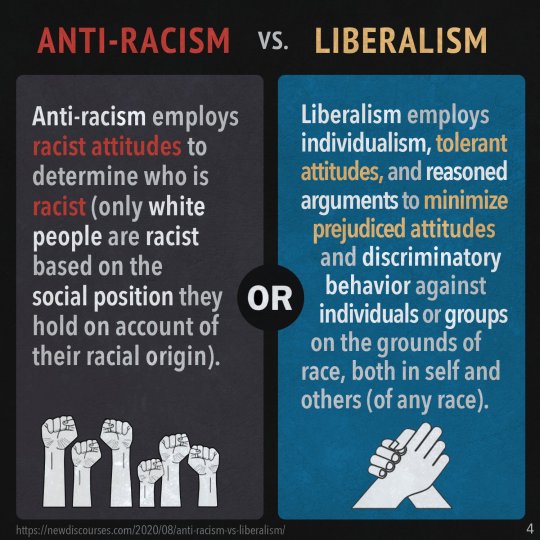

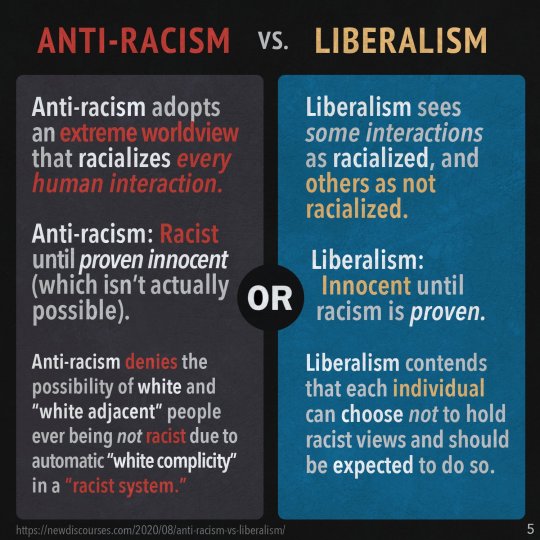
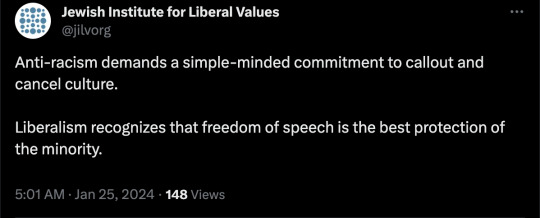
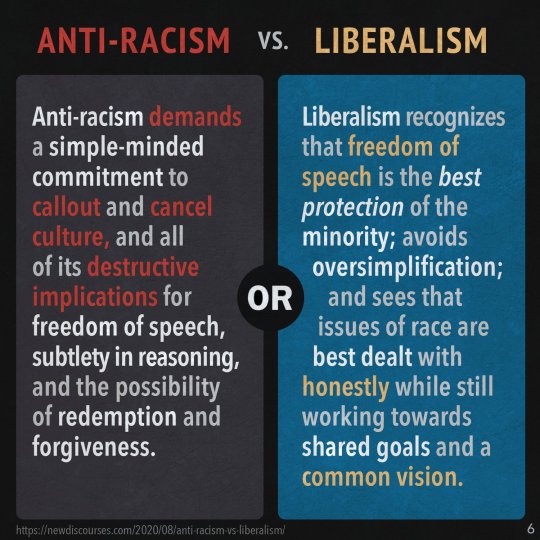
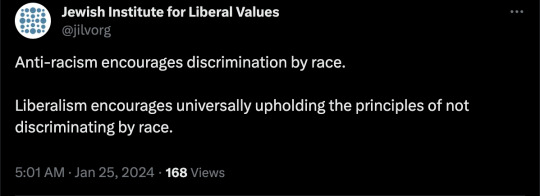
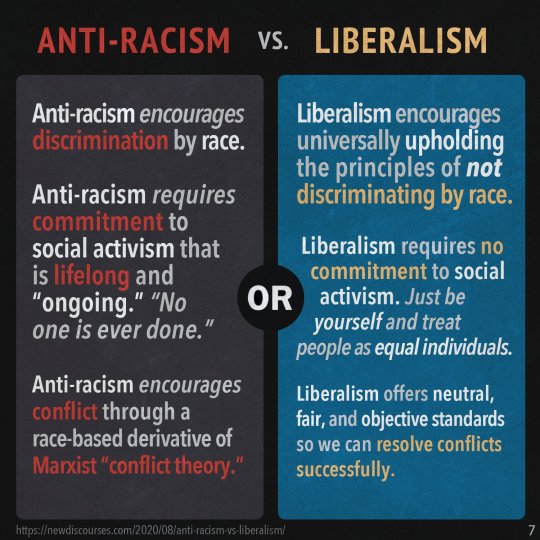
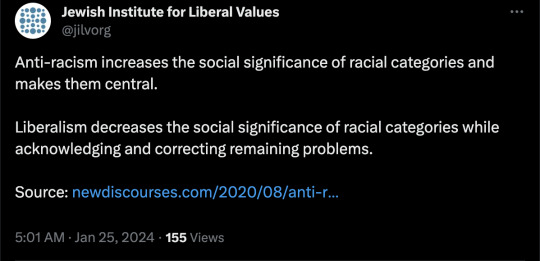
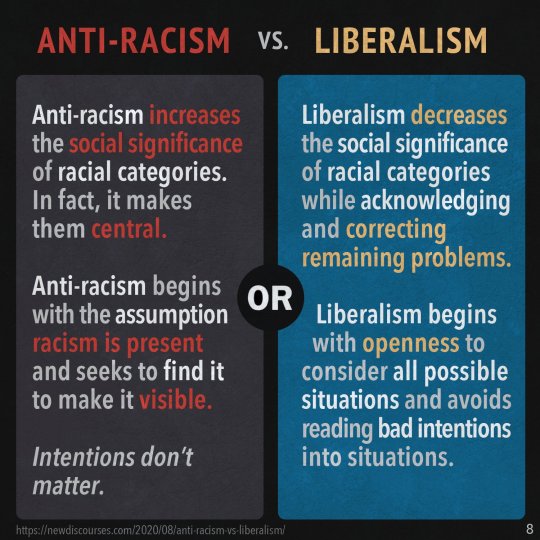
#Jewish Institute for Liberal Values#liberalism#liberal values#liberal ethics#antiracism#antiracism as religion#racial discrimination#intentions don't matter#critical race theory#individualism#collectivism
8 notes
·
View notes
Text
One of Judaism’s most distinctive and challenging ideas is its ethics of responsibility, the idea that God invites us to become, in the rabbinic phrase, his ‘partners in the world of creation’. The God who created the world in love calls on us to create in love. The God who gave us the gift of freedom asks us to use it to honour and enhance the freedom of others.
Rabbi Lord Jonathan Sacks z"tl, To Heal a Fractured World, p.3
3K notes
·
View notes
Text
does anyone have any resources or advice for someone who wants to convert to Judaism, but has no Jewish friends or relatives? the someone is me, hi
#jewish mutuals…. lend me your wisdom#i’ve been agnostic for a long time but i’m very interested in Reform Judaism#i believe in its foundational ethics and logic - i want to learn more about Jewish history and contemporary beliefs
32 notes
·
View notes
Text
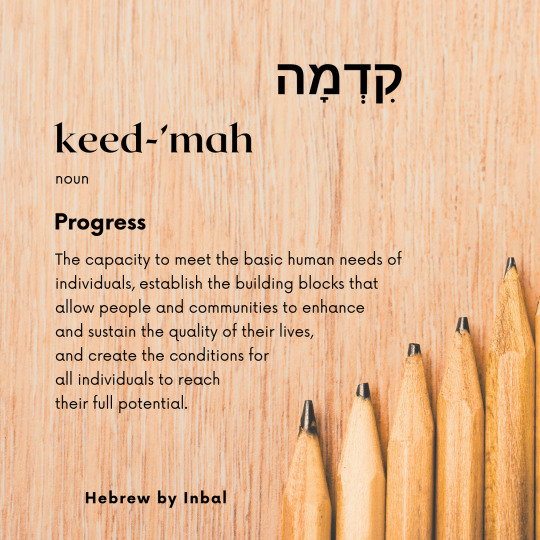
#hebrew#jewish#learnhebrew#hebrewbyinbal#language#israel#hebrew langblr#jew#torah#trending#progress#work in progress#hebrew language#learn hebrew#language learning#langblr#langblog#foreign languages#stand with israel#ethics#values#languages#hamas is isis#freedom#world peace#community#jewish culture#jewish tumblr#jumblr#israeli
17 notes
·
View notes
Text
.
#I'm not gonna be doing all that crab-posting and stuff --#not in literally any judgement of crab-posting it's just not an emotion I personally experience.#But what I WILL say is that. regardless of what I want or how I feel about him. he was Jewish. We share(d) that kinship.#That's doesn't reflect or affect any moral judgement -- being Jewish is not a moral achievement#sharing kinship with me doesn't have an inherent ethical dimension.#but it's relevant. It's why I'm saying anything in particular here.#Because -- because of that -- the thought popped into my head#and I don't think it's something anyone else would say so I'M saying it:#I hope someone puts a kidney stone onto his grave.#Bury him quick and good riddance.#(... I hope that wasn't too oblique a joke. Also he's only seventy-something but I hope Bibi falls and breaks his neck. Share the vibes.)
9 notes
·
View notes